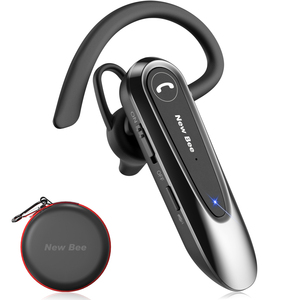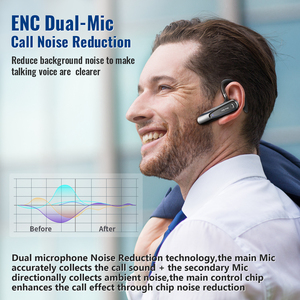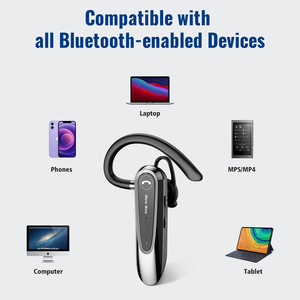
All categories
Featured selections
Trade Assurance
Buyer Central
Help Center
Get the app
Become a supplier

(15291 products available)









































Regarding consumer electronics, wireless bud have become common for both regular users and music enthusiast. These little devices provide a discreet and comfortable listening experience since they fit tightly into the ear canal. wireless bud are perfect for usage in different environments since they are well-known for producing excellent sound while reducing outside noise interference. Technological developments have made the market overflowing with choices, each designed to satisfy particular requirements and tastes. Understanding the nuances of wireless bud will enable consumers to improve their auditory experiences and make wise judgments.
The variety of wireless bud accessible nowadays meets a great spectrum of needs and tastes. Among the main varieties are wired, wireless, and true wireless earphones. Direct connection and continuous sound are guaranteed with wired earbuds since they are coupled straight to the audio source. Conversely, Bluetooth technology allows wireless earphones to connect to gadgets, therefore providing more mobility and ease. True wireless earbuds go one step further and remove all connections, thus offering total mobility of movement. Every variety of wireless bud is designed to provide special benefits, which allows users to select depending on their way of life and use situation.
wireless bud have several elements that improve their use and performance. One of the main functions is noise cancellation, which allows consumers to totally enjoy their audio by lowering background noise. Many wireless bud also feature built-in microphones, which let hands-free calls and voice instructions run through. Another important feature is battery life; some versions run up to 24 hours of playback on a single charge. While touch controls provide simple navigation via playlists and volume changes, wireless bud ergonomic design guarantees a pleasant fit for extended usage. All these features help wireless bud to be a flexible and essential audio tool.
Building wireless bud calls for premium materials to guarantee performance and longevity. Usually, these appliances combine silicone, metal, and plastic parts. They are made of lightweight yet strong materials. The exterior casing shields the inside electronics. A pleasant and safe fit is given by silicone tips, which also help to stop them from sliding out during movement. Advanced variants are suitable for usage during exercise or in rainy situations since they may have waterproof or sweat-resistant materials. The careful engineering behind wireless bud is aimed at providing dependable performance and a pleasing user interface.
Users of wireless bud should take numerous elements into account to optimize the advantages. Achieving the best sound quality and comfort depends on choosing the appropriate size and type of ear tips. By reducing the collection of dirt and earwax, regular cleaning and maintenance help to extend the lifetime of wireless bud. Maintaining firmware updates guarantees compatibility and enhanced functionality while using wireless models. Users should also be aware of battery management; consistent charging wireless bud helps to prevent power shortages. Comprehending the features and restrictions of wireless bud will help one to enjoy listening and get long-term enjoyment.
Choosing wireless bud requires careful consideration of numerous elements to guarantee they satisfy some particular needs. Think first on the kind of auditory experience desired. Should sound quality be the first concern, search for models with sophisticated drivers and noise-cancelling technologies. Those who prefer convenience will find wireless or true wireless options suitable. Furthermore, as wireless bud affects comfort during prolonged usage, design and suitability are quite important. Selecting a model that provides a safe yet comfortable fit will help to prevent slippage or pain during exercise.
Another factor is whether wireless bud works with different devices. Though Bluetooth technology is used in most wireless models, it is important to make sure they support the version of any device they run on. Another important consideration is battery life, particularly for individuals who use wireless bud all day. Seek for devices with quick charging capabilities and long playback times. At last, think about any other elements that can improve the listening experience such as, touch controls, voice assistant integration, water resistance, etc.
Reaching the optimal fit for wireless bud means choosing the appropriate ear tip size given by the tool. Many versions come in several sizes, so select the one that fits tightly without causing discomfort. Testing several sizes can help in identifying the optimal fit for the ear canal. Some wireless bud also include adjustable designs that allow better fit for any ear shape.
Should wireless bud not connect, first make sure Bluetooth is turned on on the device. Check whether the wireless bud is in pairing mode, that is, whether an auditory cue or flashing light indicates so. Should the problem continue, consider changing the Bluetooth settings of the device or running a wireless bud firmware update. Check the user manual for particular model troubleshooting techniques.
Many wireless bud have waterproof or sweat-resistant fabrics and are meant for use during physical exercise. To be sure the product specs fit for exercising, one should review them. Choosing models with a good fit also helps to prevent them falling out during energetic motions.
To maintain wireless bud battery life, avoid overcharging and make sure they are kept dry, cold while not in use. Frequent charging them before they run totally will help to maintain battery life. Certain models include a charging case that allows carrying extra power on the move, therefore extending usage time.
Several elements affect the wireless bud sound quality: size and kind of drivers, noise-cancelling ability, as well as frequency response. Larger drivers on models will help in finding better sound quality since they frequently generate richer and more detailed sounds. Noise-cancelling technologies can also improve sound quality by reducing background noise and enabling a more immersive listening experience.